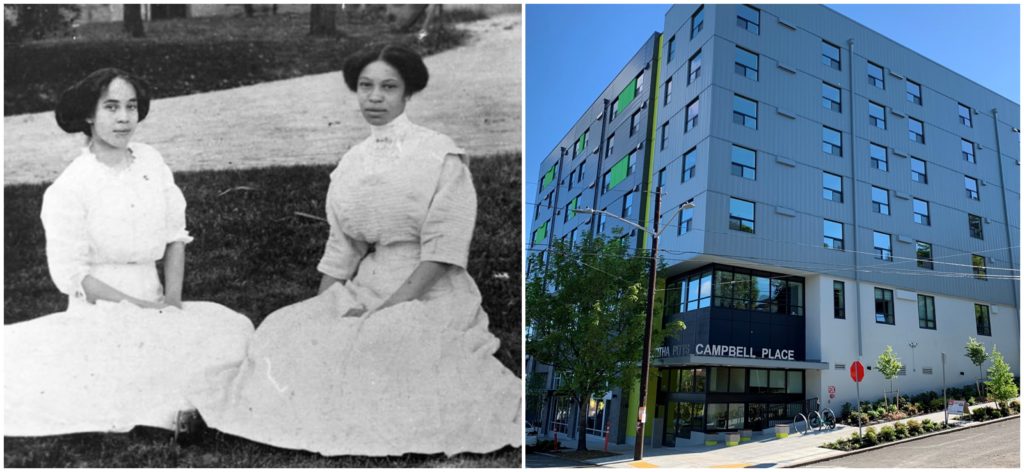
Black History Month alive in Plymouth Housing’s buildings: Bertha Pitts Campbell, right, posing with friend Bertha M. Fitts. Campbell was a suffragette, and civil rights activist. Plymouth Housing named a building in Campell’s honor. Bertha Pitts Campbell Place opened in the Central District in 2022.
For many people who live in a Plymouth Housing building, healing from the trauma of homelessness requires more than a roof over one’s head. Healing is about building community, feeling safe to be oneself, and reclaiming one’s story. It could even look like reconnecting to one’s culture or identity. Thus, as Plymouth staff seek to support residents—almost 30 percent of whom identify as Black or African American–Black History Month is a critical time for celebration. And for reflection. As Plymouth CEO Karen Lee says, “Some of the work we do today as a society will be written about in tomorrow’s history books. How will we as Plymouth Housing be remembered in the fight for racial justice? What will our contributions be to Black history?”
As we wrestle with these questions as an organization and as individuals, we bring you unique perspectives from Plymouth staff and leaders. (If you work at Plymouth Housing in any role, there’s still time to share your Black History Month reflections! Email gnomuragainor@plymouthhousing.org. Everyone in the organization is invited and welcome to participate).
This Black History Month, what have you been celebrating or reflecting on?
“Short answer: my ancestors. Not just those in my direct bloodline—rather the collective African ancestry–including those who haven’t been documented or are being suppressed; the ancestors who resisted slavery on the African continent, in the Caribbean, in the Americas, and on the transport ships; those whose stories may never be told, but whose spirit reverberates today.” – Kopano Kokayi, Residential Services Manager
“I’ve been reflecting on the difficulty of the Jim Crow era. When I was young, I was more focused on the impacts of slavery and how horrible it was. But now we know more about how Jim Crow has impacted Black people psychologically. This time period has impacted incarceration, housing discrimination, and literally every vital statistic.” – Karen Lee, CEO

The book Open Water by Caleb Azumah Nelson.
“I just read Open Water by Caleb Azumah Nelson. It’s a book about Black love, Black joy, Black art, Black trauma, and Black survival. He’s Black and British but it still filled me with a fundamental and deep, so deep, appreciation of what we as a people who’ve been tried so much and for far too long—what we have accomplished in spite of it. That’s my ‘Black History Month But Every Month Is Our Month’ Celebration.” – Paul Rosenthal, Site Director/Program Manager
“I am reflecting on how lucky I am to work on a team that strives to embody anti-white supremacy values. The first insight I had into Plymouth’s culture occurred during my interview process. For the first time in my career, I had an interview conducted by Black colleagues, which was significant because representation matters–especially at the highest levels of leadership. Now that I’ve been with the organization for a few months, I’m grateful to feel a sense of belonging that invites me to be vulnerable and authentic. ”– Huynh Chhor, LICSW, Chief Officer of Behavioral Health Integration
This year, Black History Month is exploring the theme of Black Resistance—what does this concept mean to you?
“For me, one of the more profound aspects of Being Black in America is the feeling that we are connected by stories of pain and triumph—sorrow and pride. What is a victory for any of us can be a shared moment of accomplishment for all of us. Like, when Issa said, ‘I’m voting for everybody Black,’ that was an act of resistance to our being not just ignored for our accomplishments, but intentionally blocked from being recognized or celebrated. Everything Black in this country is an act of resistance from the continuing attempts to cage, control, and dominate us.” – Paul Rosenthal, Site Director/Program Manager
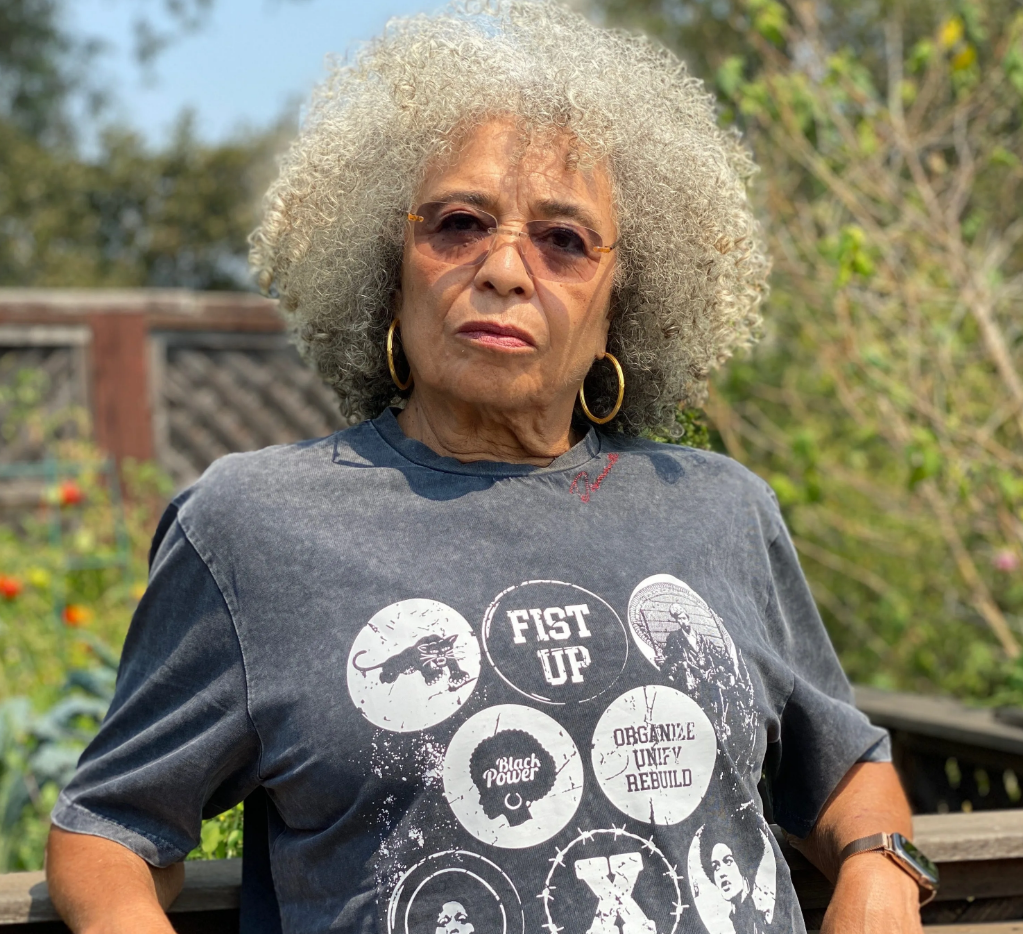
Another person who inspires Paul Rosenthal and brings the concept of “Black Resistance” to mind: Angela Davis
“While there have been improvements, it’s not enough. The poison of racism has generated a lack of value on African American life. We must resist this trend. Engage in self-care. Care for one another. Demand respectful treatment–and advocate for one another. When I was in elementary school and other children were showering me with gravel and epitaphs of hatred, an advocate would have been lovely.” – Kimberly K. Arrington-White, Vice President of Supportive Housing
“When I hear ‘Black Resistance,’ images of protests, sit-ins, boycotts, and walk-outs to create social transformation come to mind. But I also think of the quieter, everyday ways we can resist conforming to white culture. When we encourage people to speak their truth, even when it has been labeled as ‘inconvenient’ or ‘rude,’ that is another form of resistance. We can refuse to silence, minimize or diminish a Black person’s lived experience–that is another important step needed for change.” – Huynh Chhor, LICSW, Chief Officer of Behavioral Health Integration
Each February, we honor the achievements of Black Americans and their central role in U.S. history. With that said, can you share a Black American historical figure who has inspired you?
“It’s crucial to remember that for many of the individuals who brought about change and equity–we will never know their names. With that said, my mother is one person who inspires me. She empowered hundreds upon hundreds of students—many of them People of Color— with the knowledge of mathematics. She taught in a university-funded adult education program for 41 years. In addition, she was instrumental in securing tenure and the title of Associate Professor for her and her peers.” – Kimberly K. Arrington-White, Vice President of Supportive Housing
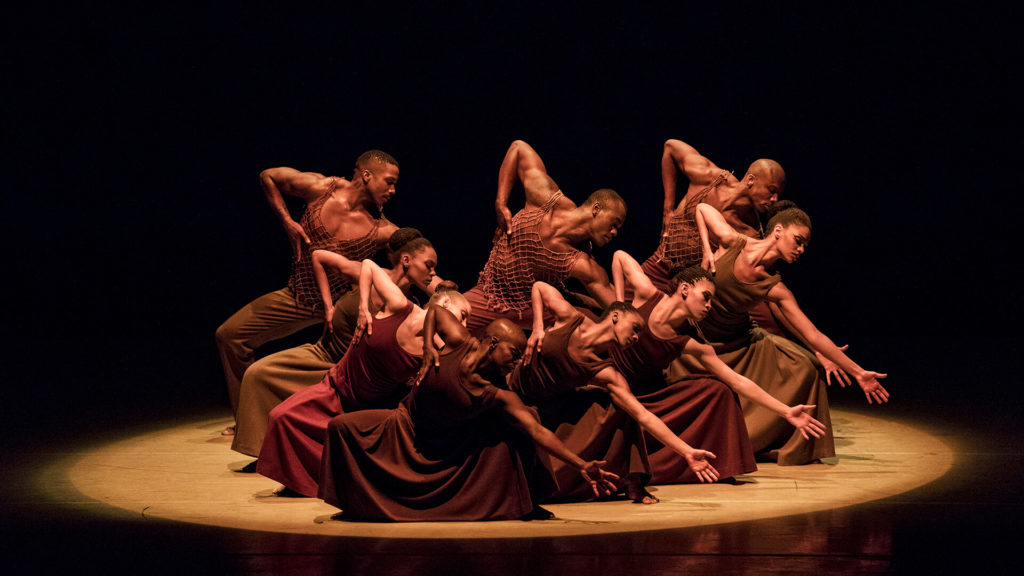
Alvin Ailey American Dance Theater performs Revelations.
”Growing up watching predominantly Black dance companies such as Dance Theatre of Harlem and Alvin Ailey American Dance Theatre planted the seed of possibility in my own identity as an Asian American. When I tell stories as a dancer or as a nonprofit communications professional today, I pay homage to those Black artists who showed me what courageous, authentic storytelling might look like beyond code-switching and assimilation.” – Gabrielle Nomura Gainor, Director of External Communications
“Angela Y. Davis is still working for Black peoples’ liberation and to end mass incarceration in this country. She does this by keeping herself out of prison for her political work and striving to free her fellow Black Panther revolutionaries. I once got to sit at her feet while she gave a speech in Norman, Oklahoma. Dr. Davis wore the sickest black Pumas. I bought a pair as soon as my broke student self could.” – Paul Rosenthal, Site Director/Program Manager
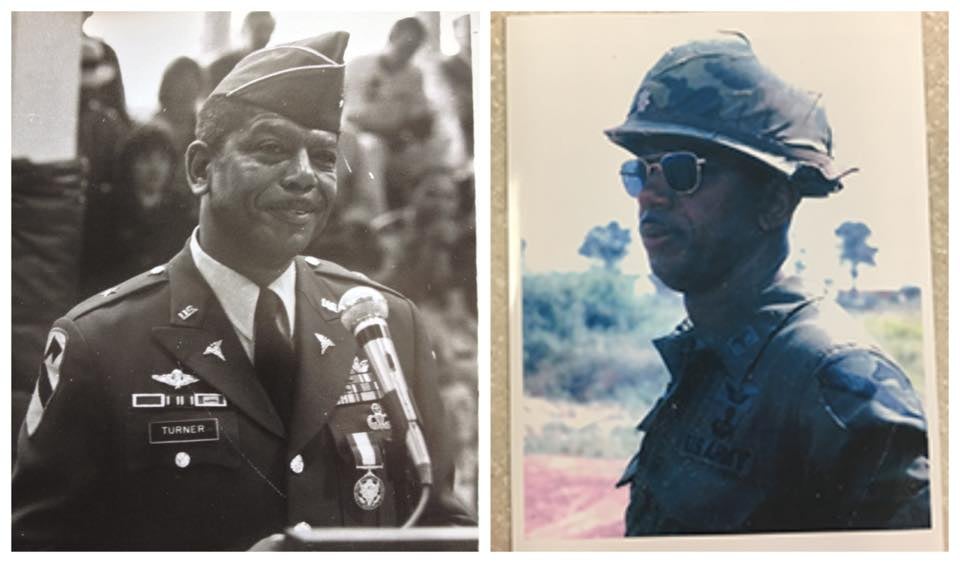
Guthrie Turner Jr. was the first African American to achieve the rank of general officer in the Army Medical Corps and the first African American to command an Army hospital.
“There are so many men and women who come to mind: Angela Davis, Malcolm X, MLK Jr. (every other year I read his book, Why We Can’t Wait.). But one person who inspires me is my dad. Guthrie Turner Jr. was the first African American to achieve the rank of general officer in the Army Medical Corps and the first African American to command an Army hospital. There’s a Joint Base Lewis-McChord building named after him.” – Karen Lee, CEO
“Dr. Carter Goodwin Woodson, the founder of Black History Month–originally known as Negro History Week. After becoming the second African American to receive a PhD from Harvard, Woodson built Black institutions for Black people. This strategy has been called a form of intellectual Marronage–fleeing from white imposition and influence–and creating space to build the world you want to live in. He worked tirelessly and died penniless–but his intellectual genealogy continues to thrive in the US and throughout the world.”– Kopano Kokayi, Residential Services Manager
Do you have resources to share in the form of books, podcasts, shows, films, etc. as part of our Black History Month learning?
“Books: “The Mis-Education of the Negro: Carter G. Woodson,” “Black Movements in America: Cedric J. Robinson,” and an episode of PBS: American Experience | Zora Neale Hurston: Claiming A Space.” – Kopano Kokayi, Residential Services Manager
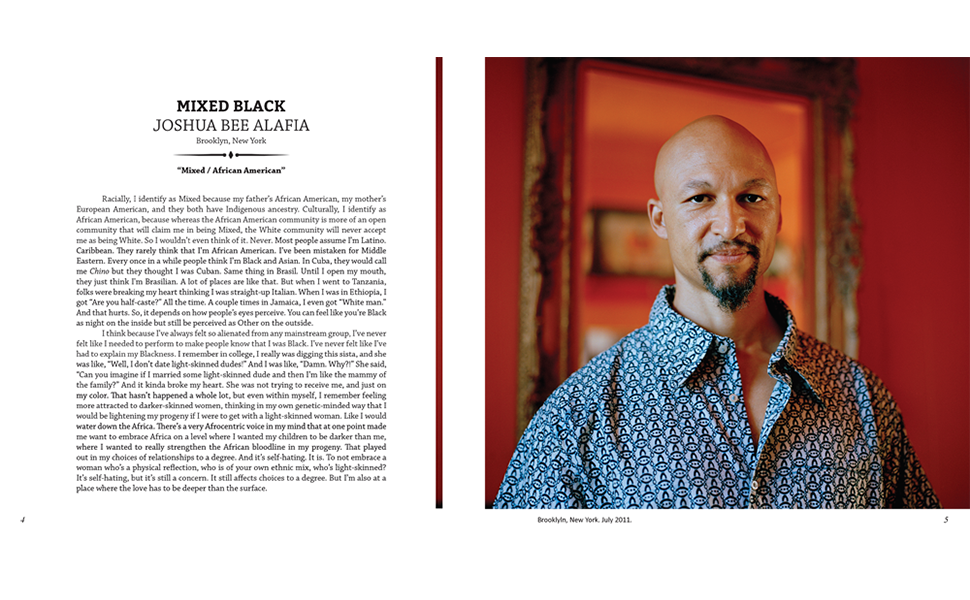
A page from the book “One Drop: Shifting the Lens on Race” by Yaba Blay.
“Those interested in the history of race in America will be fascinated by the stories and beautiful portraits of those featured in Yaba Blay’s “One Drop: Shifting the Lens on Race.” Featuring the perspectives of 60 contributors, this book provides living testimony to the diversity of Blackness. I would also recommend “The Body is Not An Apology,” by Sonya Renee Taylor and “Rest is Resistance: A Manifesto” by Tricia Hersey–both of which center Black liberation while offering frameworks for all to move toward justice and radical self-love within a white supremacist system.” – Gabrielle Nomura Gainor, Director of External Communications
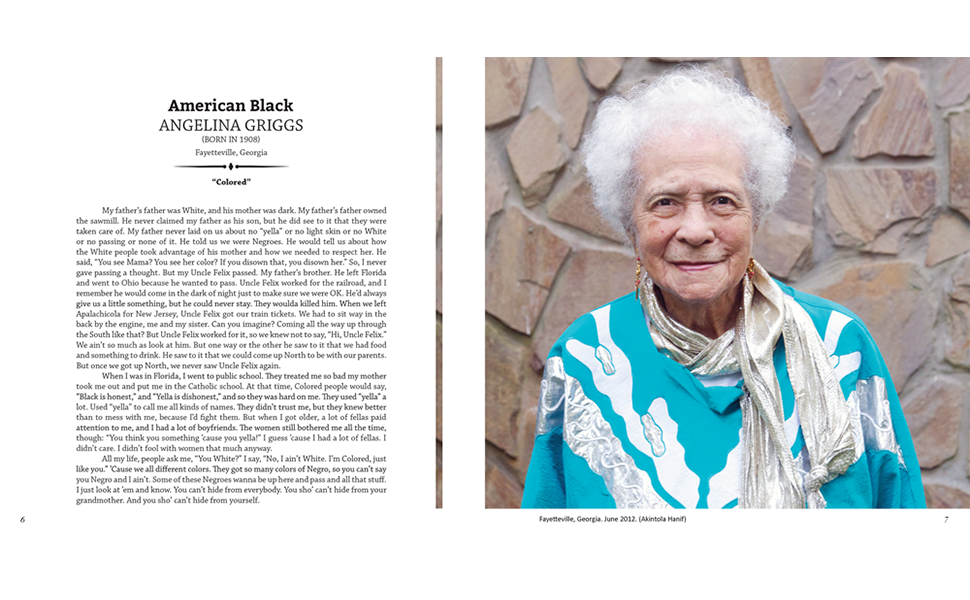
A page from the book “One Drop: Shifting the Lens on Race” by Yaba Blay.
“The National Museum of African American History & Culture’s website, The Douglass-Truth Branch library in Seattle, housing one of the largest collections of African American literature and history on the West Coast. And the website of UW History Professor Quintard Taylor Jr.” – Karen Lee, CEO
“Music is such a widespread influencer of people, culture, and the world. The list of music that has influenced me by Black artists could go on and on and on and on. I’m so inspired by those that can take life’s harshest and cruelest injustices and turn them into something positive. The songs below all are written by or performed by Black Musicians and have changed the way I think about what it has meant and means to be Black in America.”
“Swing Low, Sweet Chariot by Fisk Jubilee Singers.” This 100-year-old song looks death in the face and tells of the glory that will come in heaven.
“Strange Fruit Performed by Billie Holiday.” This song is chilling, as such are the inhumanities of racism. 1939
“A Change Is Gonna by Sam Cooke.” Sam Cooke’s music is incredible. His life was another that was taken far too soon. 1963
“Oh Happy Day by The Edwin Hawkins Singers.” A gospel classic. 1968
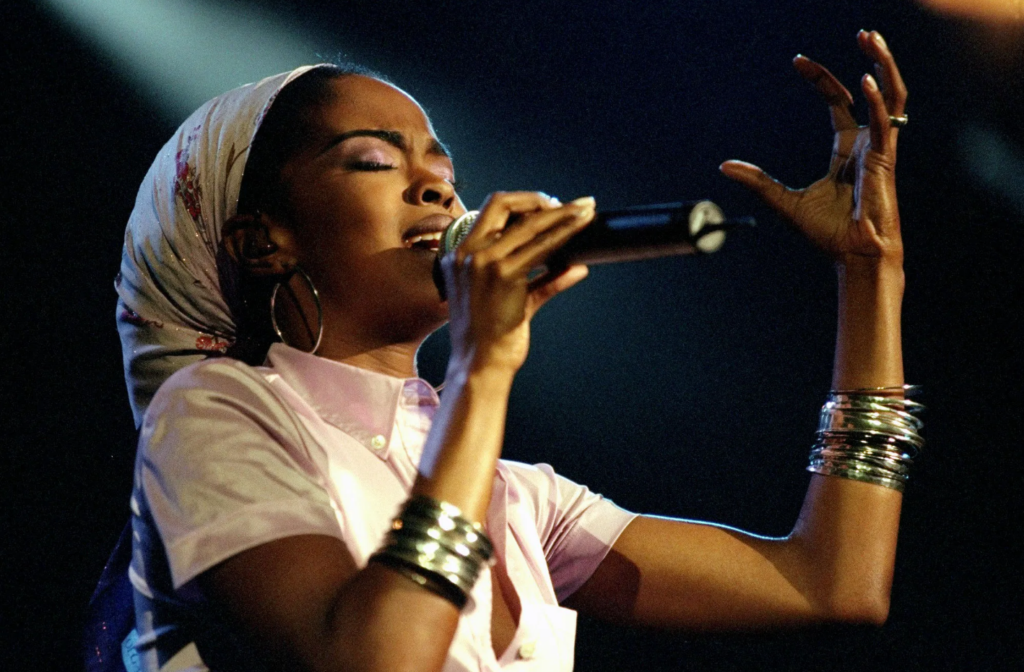
Lauryn Hill.
“Hard Times by Baby Huey.” About the difficulties of being a Black male.1971
“I’ll Take You There by The Staple Singers.” This song was written after the funeral of the Al Bell’s brother who was murdered yet it remains uplifting. 1972
“The Message by Grand Master Flash & The Furious Five.” A commentary on poverty in NYC. 1982
“People Everyday by Arrested Development.” A real life story with a clear message. 1992
“Everything is Everything by Lauryn Hill.” A realistic looks at life’s challenges while keeping a positive mindset. 1998
“Say it Loud, I’m Black and I’m Proud.” By James Brown, a Black power theme song. (Addition by Karen Lee)
“Mississippi Goddamn.” Nina Simone (written after the murder of Emmitt Till). (Addition by Karen Lee)
– Jeremy Kern, Interim Vice President of Property Management & Compliance
If you would like to share your favorite songs representing Black history, power, and resistance, email gnomuragainor@plymouthousing.org.